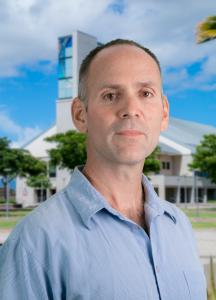National conference to feature sustainable agriculture experts in 2018
Conference to highlight indigenous knowledge and train future generations in food system resilience
University of Hawaiʻi-West OʻahuDir of Communications, Chancellor's Office/Public Relations & Marketing
The Sustainable Agriculture Education Association Conference will highlight models of higher education that represent indigenous knowledge, engage critical political-ecological analysis, and train future generations to achieve food system resilience and equity, from July 27-29, 2018 at the University of Hawai‘i - West Oʻahu.
The 2018 National Sustainable Agriculture Education (SAEA) conference is expected to draw approximately 400 educators, administrators, graduate and undergraduate students, and others involved in farmer training in North America. The conference will be co-hosted by UH West Oʻahu, University of Hawaiʻi System Office of Sustainability and the Sustainable Agriculture Education Association, a group of scholars that champion interdisciplinary agroecology and sustainable food systems programming in higher education. Dr. Albie Miles, UH West Oʻahu Assistant Professor of Sustainable Community Food Systems will serve as co-coordinator and host.
The conference invites participants from across the food system, including academic scholars, students, farmers, cooks, community organizers, land/resource managers and other professionals. Presenters will represent universities, colleges, farmer training organizations, and a range of professional and civil society organizations. Through presentations, workshops, field trips, and hands-on activities, participants will share their theories, practices, and visions for integrating indigenous knowledge, decolonization, and socio-ecological resilience into post-secondary agroecology and food systems training.
Organizers are currently soliciting requests for conference proposals. Organizers are inviting proposals for presentations, panel discussions, and workshops in three focal areas:
- Indigenous knowledge, power, and pedagogy
- Decolonizing the food system: Feeding ourselves and others through higher education
- Living traditions, living economies: Toward self-determination, resilience and equity in the food system
The Hoʻōla ʻĀina O Māʻilikūkahi Youth Food Sovereignty Congress will run in parallel with the SAEA Conference and is providing a platform from which community oriented, intergenerational and cultural approaches to building a sustainable food system are honored, cultivated, and launched.


